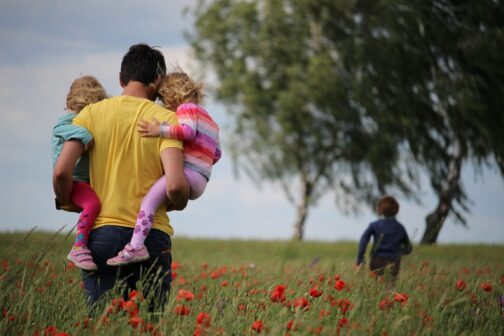 Gratitude is so simple, yet most people overlook it’s amazing benefits. Dr. David Hamilton, author of Why Kindness is Good for You, writes, “Gratitude is a mark of being kind to life by being aware of all that is around us, and when we are grateful, we acknowledge the people and situations in our life and express thanks for them.” We teach our children to say “thank you,” but it’s also important to model and teach them to see gratitude as a key philosophy of life. Seeing and feeling gratitude every day is one key to being resilient and successful.
Gratitude is so simple, yet most people overlook it’s amazing benefits. Dr. David Hamilton, author of Why Kindness is Good for You, writes, “Gratitude is a mark of being kind to life by being aware of all that is around us, and when we are grateful, we acknowledge the people and situations in our life and express thanks for them.” We teach our children to say “thank you,” but it’s also important to model and teach them to see gratitude as a key philosophy of life. Seeing and feeling gratitude every day is one key to being resilient and successful.
There is quite a bit of research on gratitude and the positive effects. These positive effects make sense, be- cause when you think about what you feel grateful for, you can’t help but feel relaxed, fulfilled, and blessed.
Benefits of Gratitude
- Greater sense of well-being
- Improved physical health
- Improved self-esteem, resilience, and empathy
- Decreased aggression
- Increased optimism
- Improved sleep
Gratitude even improves relationships. Research shows that saying thank you to someone helps to create a more positive relationship. When a child feels gratitude from his or her parents for being helpful or for just being a good kid, the child feels safer and more empowered to say something when they are upset and need to talk.
It is fairly easy to teach kids to practice a life philosophy of gratitude. Using the 30-day Imagine, Gratitude, and Kindness Challenge (Step 7 in My Imagine Journal) is a good place to start. Kids can have fun creating a family gratitude board or a gratitude box where everyone can write, keep, and even share what they feel grateful for. We play The Gratitude Game in the car or at meal- time. Particularly if someone has had a bad day, this can help them put it in perspective and feel better.
Play the Gratitude Game
Each person takes a turn saying what they are grateful for, beginning with, “I am grateful for…”. You can also use, “I love…” saying what you love about each person or life in general!
Everyone takes at least three turns. If someone is unhappy about something, it may help to first clear the air by letting them talk about what’s upsetting them, while others listen with compassion. After they’ve had their say, feel more relaxed, and are ready to change perspective, switch it to gratitude, and watch moods brighten.
If someone wants to remain cranky, it might feel like pulling teeth to get them to join the game but be patient and gently invite them to join when they feel ready. They may be content to listen—and benefit from it—especially if they know it’s not being done to manipulate their mood. Even if they continue to resist, simply let them be, and honor their desire to come around in their own time, on their own terms.
Kindness
It feels good to be kind. It’s in our nature to be kind, but we have to teach and cultivate it in ourselves and our children. Kindness not only benefits others, it has positive effects on our bodies and our minds.
Research has shown that doing acts of kindness:
- makes us happier,
- improves immune function,
- changes chemical balance in the brain to reduce depression,
- releases oxytocin (a happy hormone!),
- decreases inflammation in the body, improving our health,
- helps us feel better about ourselves,
- Decreases bullying,
- increases peer acceptance, and
- is contagious.
Talking to your children about being kind is important, but kids learn what they see, so the more they wit- ness and experience kindness, the more they will practice it themselves. Step 7 in My Imagine Journal encourages one random act of kindness every day for 30 days—a great way to ingrain a kindness philosophy into a child’s life. There are hundreds of simple acts of kindness to show and teach kids, www.kindness.org has great ideas. Here are some to begin with:
- Write a thank you card.
- Let someone go ahead of you in line.
- Carry something for someone who needs help.
- Tell someone why they are special to you. Talk to someone new at school.
- Donate food or clothing.
- At a restaurant or store, tell an employee what a good job they did for you.
- Pick up litter.
- Help make dinner.
- Write a poem for a friend.
- Talk to a lonely neighbor.
- Play with a pet (you might even go to an animal shelter and play with the animals there).
- Give your mom a neck or shoulder massage.
With gratitude,
Dianne
Dianne is the founder and CEO of The Imagine Project, Inc., a nonprofit organization that helps children K-12 (and adults) process and heal from difficult life circumstances through expressive writing. Dianne has her Masters in Psychiatric/Mental Health Nursing, is a thought leader in stress and trauma in children, has written multiple award winning books including The Imagine Project: Empowering Kids to Rise Above Drama, Trauma, and Stress. She is an international speaker, lives in Colorado and has 3 grown children. Learn more about The Imagine Project at www.theimagineproject.org.


